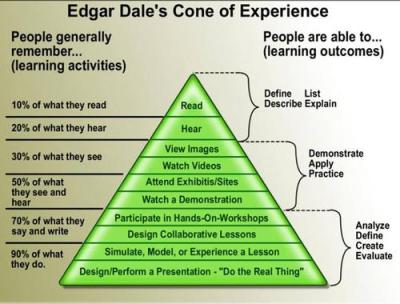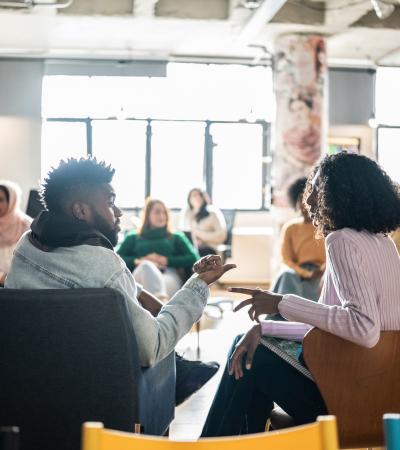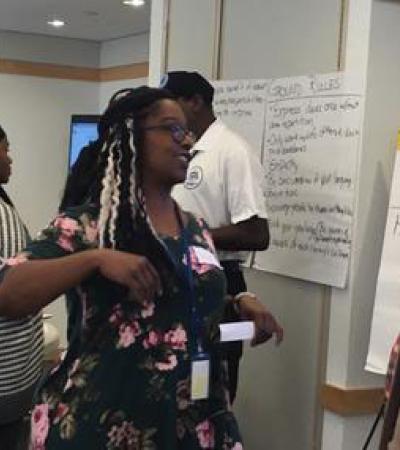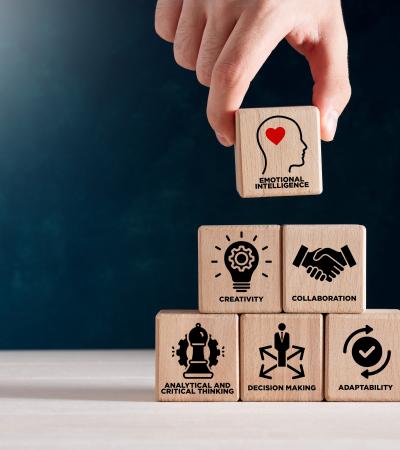“Tell me and I forget. Teach me and I remember. Involve me and I learn.” — Xun Kuang, philosopher
Imagine trying to learn to knit. Would you learn best by reading a book about knitting? Hearing a friend talk about knitting? Watching an expert knitter? Or learning the basic steps and actually trying to knit?
According to learning theorist Edgar Dale, active involvement is crucial. Dale claims that we remember 10 percent of what we read, 20 percent of what we hear, and 30 percent of what we see, but we remember 90 percent of what we actively participate in.

In the series of four half-day Skills for Community-Centered Libraries workshops, participants hear about and discuss key skills such as asset mapping, communicating effectively, listening, facilitating conversations, building partnerships, and developing and evaluating programs.
Now that they have attended the four workshops, the 25 members of Cohort 1 have begun to work on their 12-week projects. Each person thought of a project to practice specific skills in the context of their work. Some examples of these projects are:
- Creating a Mandarin language film about Free Library services and policies, with English subtitles, to communicate more inclusively with Independence Library's community.
- Collaborating with Kensington Voice and Temple School of Journalism on a teen photography project that deepens connections with neighborhood assets and emphasizes positive aspects of the neighborhood around McPherson Square Library.
- Documenting Cecil B. Moore Library’s community assets and connections for future staff use.
- Educating staff on the importance of trauma awareness in effective communication.
- Promoting the use of library website databases for lifelong learning by engaging with neighborhood residents and organizations.
- Promoting legal literacy at several library locations through an Australian model called the ILAC Scaffold.
- Developing communication skills by sharing stories about involvement with the library.
- Engaging communities and developing programs around the Rare Book Department’s grant to digitize Muslim world manuscripts and paintings.
- Hosting conversations for teachers and librarians at Lucien E. Blackwell West Philadelphia Regional Library to learn what teachers need from the library and developing a program survey to collect data about the participating teachers’ reactions to the dialogue sessions.
Training participants will share more about their ongoing work on these projects in upcoming blog posts. If you have questions or suggestions for them, please comment below.
And if you really do want to learn to knit, many Free Library locations offer knitting clubs where you can actively participate!
For more information about the Skills for Community-Centered Libraries Initiative, contact Project Coordinator Cameron Voss at vossc@freelibrary.org.



